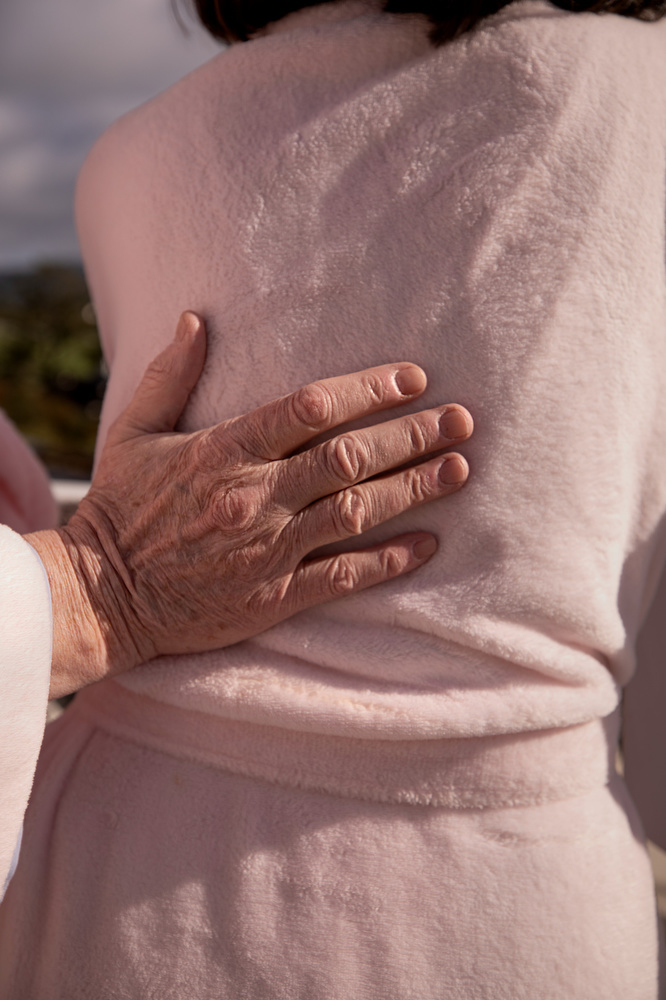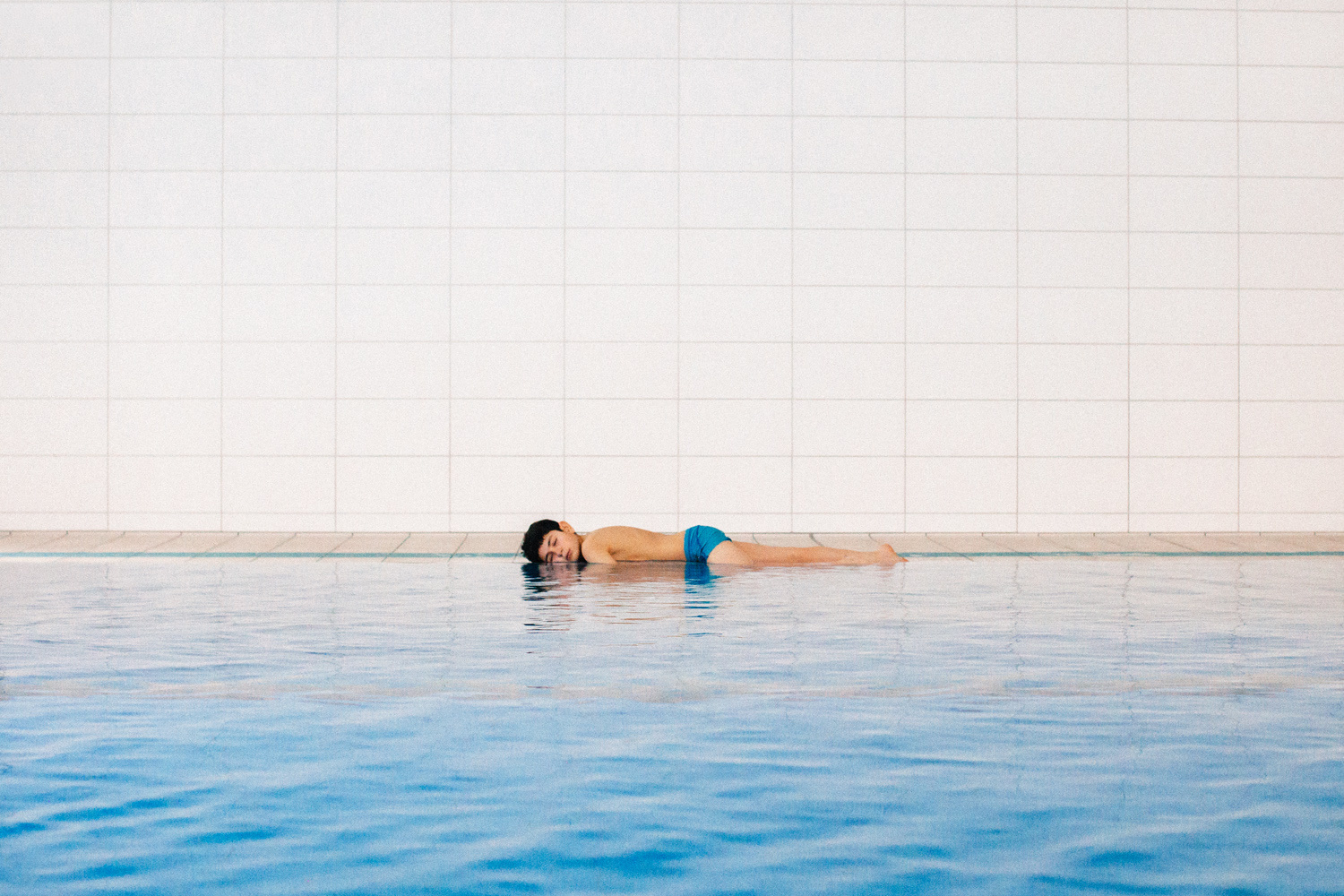Open wounds bleed on the inside too. They branch out and seep into the memories, settling in the mind until they force the body to do something about it and revisit the reason they are there in the first place. In Diana Markosian’s journey, the open wounds remained in her, as if inborn, but they no longer cause pain. Instead, they are tattoos that inform her documentative body of work, a dialogue between her past and present self the viewers are privileged enough to see. Moving homes means changing territories for the NYC-based photographer and filmmaker. Unlike other creatives who entrust cinematic touchups to define their oeuvre, Markosian relies on making her photographs and videos centered on human and their emotions. In the past, she lent her lens to profiles news agencies and magazines clamored for to accompany their journalists’ texts. Then, she took the narrative as her own and brought about Santa Barbara, a book that looks into her family’s journey in post-So- viet Russia through a series of staged photographs and a narrative video, taken from her mother’s perspective.
I just moved into a new house – still in New York – and now live with my partner. We’ve been decorating the place, and I’m in charge of finishing up a few rooms. It’s been lovely to be settling in, and our neighborhood is beautiful. I also just got back from France for my partner’s award ceremony, and right before that, I had been in Kosovo for two days, directing a short film for National Geographic. Now, I’m now setting up a show with my gallery in Paris and doing a talk in London with the V&A Museum. I’m also starting a new project with my partner. It’s a love story about our time apart from each other and then our time togeth er when he comes back. I’m also developing a TV series with a Hollywood production company to Hollywood studio, rather to pick the projects that I think we’ll be talking about. The San Barbara project.
I think this is why I get up so early, so I don’t get tired. When I sound off all of these things, it sounds a lot, but it’s fun when I’m doing it. They don’t go all at once anyway. I think the word fun is a bit complex here because there’s a version where you understand how lucky you are to even be in one of these positions, let alone all of them. So, I think it’s fun, but I also think they can easily be taken for granted. It’s easy to forget where we were a year ago or two since it’s the kind of thing that gets lost, so there’s this sentiment of just enjoying the moment. Maybe that’s what I want to work towards, that success to me is just being able to enjoy the thing you do versus – and I don’t mean this in a superficial way – the day-to-day life, that state of feeling ful- filled with what you’re creating.

I’ve moved a lot in my life, and this was definitely one of the harder moves that I’ve made. It wasn’t so much in terms of the location. It was the many things that are going through as I move in with somebody. We’re doing great now.
I was born in the former Soviet Union and was raised between Armenia and Russia. My entire family lives in Armenia, and I’m part of a very big, boisterous family where my grandmother would gather everyone in her big house and that was the meeting point of our family. Then, the war happened in the 90s, and we suddenly moved to Russia because of that. We would come in and out of Armenia because we couldn’t afford to be in Russia at this point. In, Armenia, there was no electricity or water. We were just huddled around each other and a kerosene lamp. These scenes of my childhood feel so present in my daily life now. It was a real upbringing where we didn’t have very much as a result of war and what was happening in the 90s and the former Soviet Union. That left an imprint on my life, and it’s been a point of reference for a lot of my work. When I was twenty, I moved back to Moscow and tried to reconnect with what we left behind. When I was 22, I went and found my father who I was separated from when I was a kid, and it was 15 years after we had seen each other. This childhood just doesn’t leave you. Part of my practice has been this reckoning with part of my life that I’ve left behind and coming to terms with it. I’m now working on my second book about my father. It’s been a gift as an artist to have this chance to look at something and, in some way, preserve the time and allow something to re-exist for you that was lost. So much of my work is about a memory, a feeling that no longer exists but you just desperately want to reclaim, slow down, or just save for yourself. That’s what art has become for me, a tool to create a memory and to create my own version of that memory and not be defined by the memories that haunted me for so long.It’s very real, to say the least, to go through these experiences and feel defined by them because they’re so traumatic. I’ve been in this incredible position where I’ve had a chance to look at these experiences and find new ways of remembering them. I’m going to try my best to find my voice in a time when I didn’t have one. As a kid, you don’t have much sway in your parents’ decisions, and I think through my art I’ve had time, space, and just the gift of understanding a few things better for myself without anybody’s interpretation.
I almost didn’t know that there was another genre of photography. I can’t believe I missed the fact that it could have been fashion or any other genres, but I chose this one specific version of it, which is also very taxing. It’s not an easy version of photography, not only it is not easy emotionally, but also as a career. When I look at why I chose this, it makes sense because I don’t think my personality would have been able to do something wider than this. I needed to go through reality to understand myself. I needed to experience other people to understand myself. This purpose is so beyond self, and I think there’s a level of selflessness that comes with this type of practice where it’s not about you and your feelings without people in front of you. There’s a real purpose that comes with this form of documentary practice that’s such a real gift. I’ve just been so lucky to embark on that, but also personally and creatively, it has limitations. This is why I’ve been branching out into film, into constructive practice because I just want to feel and know that I can have a voice in the work that I make rather than just be a channel or an intermediary. I want to have more claim in the stories, and I think that’s where documentary has a real limitation. I want to have more of a mark on the project that I make this time.
I was in a position where this was the right medium for me, and I needed it to find my purpose. When you have a real purpose in your life and it comes through your work and people, there’s nothing and a relationship that’s more fulfilling. I don’t think that it can be replaced. I do think you can outgrow these feelings and you can not identify with the same thing years later, and maybe this is where I am right now, but I do think that initial pull and attraction toward this craft was very authentic. When you’re doing things that you love, you can’t sleep at night because it’s the most important thing you’ve ever touched, that’s the territory you want to exist in. That, at least for me, has been the motivation behind all of these.

It’s about my father and about how we met and reconnected. It’s looking at my childhood through different chapters, from how we were separated all the years and were apart to the time when we found each other. It’s about his search for me, searching for a man who never existed, and then finding him and a sense of absence. For me, at this stage of my life, it’s so important to accept both of my parents and honor them in any way that I can by creating work with them, and seeing and accepting them for who they are. That’s been a big gift to me as an artist since I’ve dedicated a decade to understanding where I come from and my next work after this will hopefully branch out of this and then we look at other parts of my life. But first, I needed to go through these two stories.
The word ‘challenging’ is a hard word. I think what comes to mind is painful, People who haven’t ventured this won’t understand that this was the only word that came to mind (my father himself didn’t understand it like that). There’s something that’s been taken from you, and then when you go through this, you understand that you can never get it back, and that’s the pain. The pain isn’t the 15 years you’ve already lost. The pain is the fact that no matter how many years you put into it, you’ll never be in the same place. That place doesn’t even exist or doesn’t exist anymore, and you see this get reflected in all parts of your life. You’ve hardened because you’re unable to give that softness that was taken from you. There’s always a fear of that being taken again, and I think that’s a sad place to live in. A lot of the work that I have to do in my life now is to make sure that I don’t allow these experiences as a kid to damage my problems naturally. We all get hurt in life, and you can’t put it all on childhood and then think that that’s a good enough excuse. I do think that it’s real. You change because of these experiences, you don’t know how to relate in the same way, but I think the goal is not to isolate yourself so much that you can’t be with other people, or you don’t know how to open up anymore. That’s where the challenge comes, which is a painful reckoning that what I had will never be and what will exist will never be what I had. For the second photo book, it’s going to have writings from both me and my father. It’s in the process, so I’m going to do is take more trips to Armenia. This has been ongoing for a decade, so maybe this year, I’ll take a trip to Armenia, sit with him, and just work through some ideas that I have and that we’ve created together.
I think it’s all about letting go. Creatively speaking, so much is about letting go. It would be silly to think we have any control over anything that we do. There’s always an intention and then comes the reality. I don’t think we are in full control of anything, and artistically, it’s all about letting go of expectations, all about letting go of things that come.